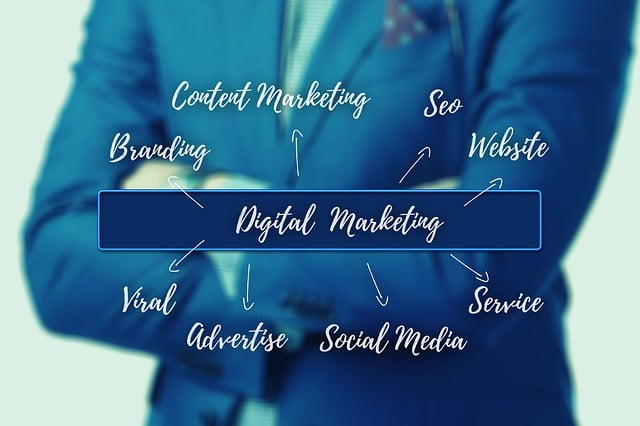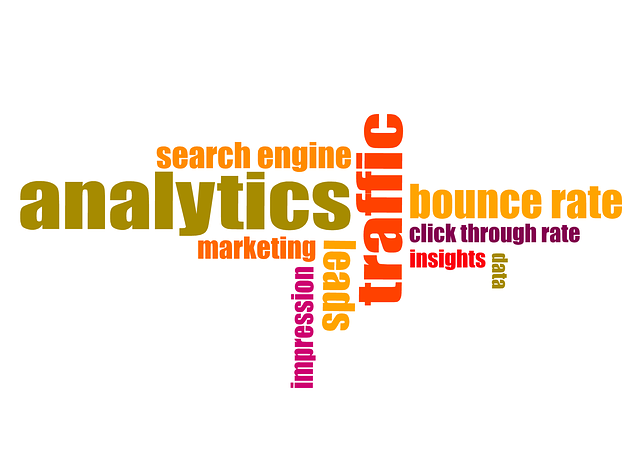In today's digital age, SEO Insights Events are crucial for businesses aiming to excel in competitive markets. These events focus on data-driven marketing strategies, leveraging customer data and market trends to inform strategic decisions. Key areas covered include keyword research, competitor analysis, and understanding analytics for effective campaign creation. By optimizing content and audience behavior, companies enhance search engine rankings, drive traffic, and increase conversions. SEO Insights Events empower marketers with real-time data on user behavior, enabling them to stay ahead of algorithm updates and maintain competitiveness in the dynamic digital landscape.
In today’s digital landscape, data-driven marketing and SEO are indispensable for online success. This comprehensive guide explores the intricate relationship between these powerful tools, providing insights that can propel your brand forward. From understanding the core principles of data-driven marketing to uncovering the latest SEO trends, this article delves into actionable strategies. Discover how to harness customer data, optimize content, master on-page SEO, build backlinks effectively, and stay ahead of algorithms. Unlocking these SEO insights is the key to navigating today’s competitive digital event.
Understanding Data-Driven Marketing: Unlocking the Power of Insights

In today’s digital era, data-driven marketing has emerged as a powerful tool for businesses to navigate and thrive in competitive markets. It involves leveraging insights from vast amounts of data—customer behavior, market trends, and user interactions—to make informed decisions that drive growth and enhance customer engagement. By analyzing SEO insights at every stage of the marketing funnel, companies can unlock valuable knowledge about their target audience, optimize content strategies, and ultimately improve search engine rankings.
During an SEO Insights Event, marketing professionals gather to exchange ideas and delve into the latest trends shaping the industry. These events provide a platform for participants to explore data-driven techniques, such as keyword research, competitor analysis, and analytics interpretation. By understanding how to extract actionable insights from data, businesses can create tailored marketing campaigns that resonate with their audience, increase website traffic, and drive conversions—all essential elements for achieving success in the ever-evolving digital landscape.
The Role of SEO in Modern Marketing Strategies

In today’s digital landscape, Search Engine Optimization (SEO) is more than just a marketing tactic; it’s a strategic imperative. As businesses vie for visibility in crowded online spaces, SEO has emerged as a powerful tool to drive organic traffic and connect with potential customers. An SEO Insights Event highlights the evolving role of this discipline, showcasing how it adapts to algorithm changes and shifts in user behavior. By understanding search trends and optimizing content accordingly, marketers can ensure their efforts remain relevant and effective.
These events also emphasize the importance of data-driven decision-making. SEO is no longer about keyword stuffing or following outdated practices; instead, it’s a science that leverages analytics to identify opportunities. Marketers gain valuable insights into consumer preferences, search intent, and market trends, enabling them to create content that resonates with their target audience. This data-centric approach not only boosts online presence but also drives meaningful engagement and conversions, solidifying SEO as a cornerstone of modern marketing strategies.
Key Metrics and Analytics for Measuring SEO Success

When evaluating the success of your SEO efforts, understanding key metrics and analytics is crucial for gaining valuable insights at each stage of the marketing funnel. Core metrics to track include organic traffic growth, keyword rankings, click-through rates (CTRs), and bounce rates. Organic traffic growth shows how effectively your content is attracting visitors over time, while keyword rankings reveal your visibility on search engines. CTRs indicate the appeal of your titles and meta descriptions, while bounce rates help identify content that may not be resonating with users.
SEO Insights Events provide a goldmine of data by offering real-time analysis of user behavior, enabling marketers to make informed decisions. By leveraging these analytics, businesses can optimize their content strategies, improve site navigation, and enhance overall user experience. Such insights are instrumental in staying ahead of algorithm updates and ensuring your website remains competitive in the ever-evolving digital landscape.
Leveraging Customer Data to Enhance Search Engine Rankings

In today’s digital era, leveraging customer data is no longer an option but a necessity for enhancing search engine rankings and gaining a competitive edge. By collecting and analyzing user behavior patterns, demographics, preferences, and interactions with marketing campaigns, businesses can uncover valuable SEO insights. These insights enable them to create targeted content that resonates with their audience, thereby improving site visibility and driving organic traffic.
During the SEO Insights Event, industry experts emphasized the power of data-driven decision-making in optimizing search rankings. They revealed strategies such as personalized content creation, refined keyword targeting based on user intent, and dynamic website adjustments according to customer feedback. These approaches not only boost online presence but also foster stronger connections with customers, leading to increased engagement and conversions.
Optimizing Content with Keyword Research Techniques

In the dynamic landscape of digital marketing, content optimization is a cornerstone of success, and at the heart of this strategy lies keyword research. During an SEO Insights Event, experts often emphasize the significance of understanding your target audience’s language and search patterns. By employing advanced keyword research techniques, marketers can uncover valuable insights that drive content creation and improve search engine rankings.
This process involves identifying relevant keywords and phrases that potential customers might use when searching for products or services online. Through tools like Google Keyword Planner, SEMrush, or Ahrefs, businesses can analyze search volume, competition levels, and user intent. Such data enables marketers to create content that not only resonates with their target audience but also aligns with the keywords they are actively searching for, thereby enhancing visibility and driving organic traffic.
On-Page SEO: A Comprehensive Guide to Technical Optimization

On-Page SEO is a crucial aspect of any data-driven marketing strategy, offering a wealth of SEO insights that can significantly boost your search engine rankings. It involves optimizing individual web pages to rank higher and earn more relevant traffic from search engines. By focusing on technical optimization, marketers can ensure that their websites are accessible and understandable for both users and search crawlers. This process includes a range of techniques such as keyword research and strategic placement, meta tag optimization, ensuring mobile-friendliness, improving page load speed, and creating quality, engaging content that aligns with user intent.
A comprehensive on-page SEO strategy begins with in-depth keyword analysis, identifying the terms your target audience is using to search for products or services related to your business. These keywords are then seamlessly integrated into title tags, meta descriptions, headers, and throughout the content of each page. Additionally, technical factors like structured data markup, XML sitemaps, and internal linking play a vital role in helping search engines understand the context and hierarchy of your website’s content. When executed effectively, these on-page optimizations contribute to better click-through rates, reduced bounce rates, and ultimately, higher search engine rankings during an SEO event.
Building Effective Backlinks: Strategies and Best Practices

Building effective backlinks is a cornerstone of both data-driven marketing and SEO strategies. It involves attracting high-quality, relevant websites to link back to your own, thereby enhancing your site’s authority in the eyes of search engines. During an SEO Insights Event, experts often highlight successful strategies such as creating compelling, shareable content that naturally draws links; collaborating with influencers and industry leaders for guest blogging opportunities; and engaging in outreach campaigns that build mutually beneficial relationships.
Best practices include ensuring link diversity—mixing anchor text types and linking from varied domains—to appear natural to search engine algorithms. Avoiding low-quality or spammy links is crucial, as these can have a negative impact on your site’s ranking. Regularly monitoring backlinks using SEO tools helps maintain a clean profile and quickly disavow any suspicious links. Additionally, focusing on building backlinks from authoritative sites within your industry aligns with Google’s quality guidelines, leading to better search engine rankings and organic traffic growth over time.
Staying Ahead of Algorithms: Adapting to Evolving SEO Trends

In the ever-evolving digital landscape, staying ahead of algorithms is a game-changer for marketers and businesses aiming to dominate search engine rankings. The ongoing evolution of search engine optimization (SEO) trends necessitates adaptability; what worked yesterday may not guarantee success tomorrow. As search engines like Google update their criteria, professionals must embrace dynamic strategies to remain relevant. Attending industry events and keeping up with SEO insights from thought leaders is crucial for navigating these changes.
By participating in SEO-focused gatherings, marketers gain access to the latest knowledge and trends, enabling them to anticipate algorithm shifts. These events foster a culture of continuous learning, where professionals exchange ideas, strategies, and best practices. Embracing this dynamic approach ensures that marketing tactics remain effective, ensuring businesses stay at the top of search results and attract their target audiences.
